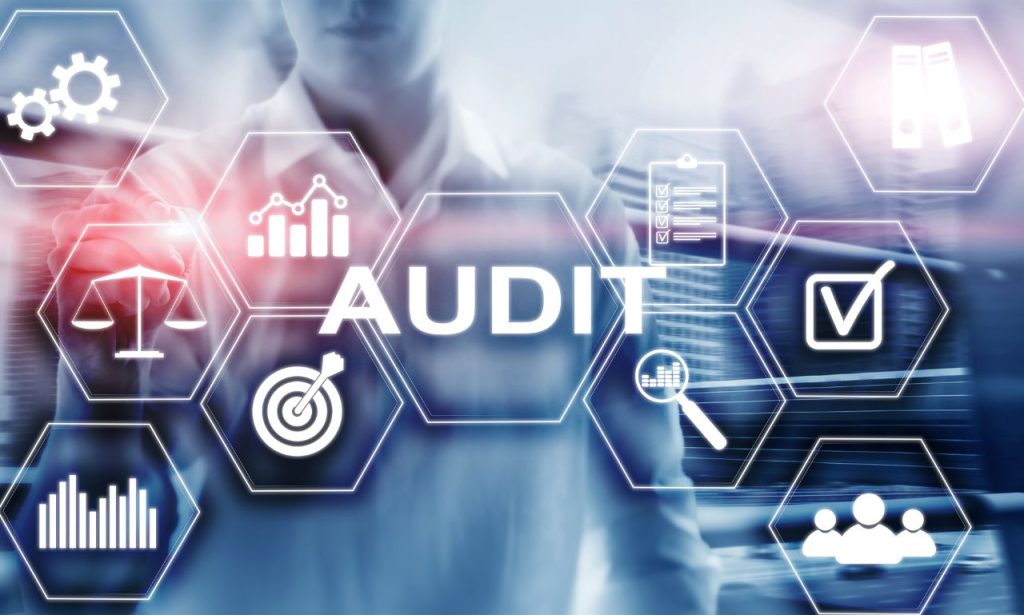Commercial energy management systems in Nassau are revolutionizing how businesses handle energy efficiency, and ISO 50001 certification is your gateway to the forefront of this movement. It provides an effective framework for managing energy resources, cutting energy costs, and improving overall sustainability. This course offers a comprehensive understanding of ISO 50001 and equips you with the skills to achieve significant energy savings for your organization.
Benefits of ISO 50001 Certification
ISO 50001 certification isn’t just about checking a box—it’s about leveraging commercial energy management systems to elevate your business’s efficiency and sustainability in Nassau. Whether you are aiming to save on energy costs, boost operational efficiency, or establish a greener footprint, this certification delivers concrete benefits. Here’s how it makes a difference:
Enhance Sustainability Practices
Get serious about sustainability. With ISO 50001, you’re not just improving your energy management systems—you’re positioning yourself as a pioneer in environmental sustainability. From reducing greenhouse gas emissions to cutting unnecessary energy consumption, this certification gives your organization a powerful framework to reduce its carbon footprint and contribute meaningfully to the planet. Implementing commercial energy management systems in Nassau helps align your business with international sustainability goals, making a direct contribution to addressing climate change.
Improve Energy Performance

Commercial buildings often face the challenge of rising energy costs, and inefficient energy usage can lead to excessive expenses. ISO 50001 provides a strategic approach to managing energy resources effectively. With its systematic structure, you can track, analyze, and refine your energy usage, ensuring every watt of energy is optimized. This results in substantial savings on energy bills and drives cost-effectiveness across your operations. It allows businesses to identify and act on energy-saving opportunities while minimizing their environmental impact.
Effective energy management is not just about cutting costs—it’s also about being more efficient in resource allocation, enabling commercial buildings to function at their highest capacity. The certification helps in conducting energy audits and identifying areas where energy-saving solutions can be implemented. With better energy performance, organizations also experience a reduction in operating costs, boosting overall profitability. Commercial energy management systems in Nassau play a pivotal role in improving energy performance.
Foster Organizational Credibility
ISO 50001 certification showcases your organization’s commitment to environmental sustainability, creating trust with stakeholders, partners, and customers. Commercial energy management systems in Nassau are an evolving market, and having this certification under your belt signals dedication to energy efficiency, credibility in industrial facilities, and respect from professionals working in the field. It demonstrates that your organization takes its energy consumption and environmental responsibilities seriously.
Certified companies gain a competitive advantage, as customers and investors are more likely to trust a business that aligns itself with green energy technology and sustainability goals. It also opens up new business opportunities by making your company a preferred partner for clients and collaborators who prioritize sustainability.
Certification Process
Getting ISO 50001 certified involves several key stages, and understanding them helps make the journey smoother. This certification requires a thorough understanding of your current energy consumption and implementing an efficient energy management system that aligns with ISO standards. Let’s break down the certification process.
Eligibility Requirements
To become ISO 50001 certified, it is essential to meet specific eligibility criteria. Applicants should ideally have some professional experience in energy management, whether it’s through direct practice or academic qualifications. This means having foundational knowledge about processes, commercial energy management systems, and, preferably, experience working within organizational contexts. Whether you are a facility manager, an energy manager, or part of an environmental sustainability team, having practical insights into energy systems makes it easier to apply ISO 50001 standards effectively.
Application Steps
Here’s a sneak peek at the basic steps you need to follow to get certified:
- Step 1: Gather Evidence of Eligibility: Collect relevant documentation showcasing your experience in energy management.
- Step 2: Submit Application Form: Submit the necessary forms to an accredited certification body. This step involves providing information about your energy management system, the scope of the system, and energy efficiency goals.
- Step 3: Documentation Preparation: Prepare the documentation that outlines your current energy management system. This includes developing an energy policy, setting energy performance targets, and implementing energy-saving solutions.
- Step 4: Schedule an Audit: Arrange an audit with a certified body to assess compliance with ISO 50001 standards. This audit will help identify areas of improvement and establish whether the energy management system meets the required standards.
Auditing Procedures

A major part of the certification is a rigorous audit to evaluate compliance with the ISO 50001 standards. The auditing procedures help ensure that the energy management system is not only documented but also effectively implemented. Here’s what the audit will involve:
- Documentation Review: An auditor will review energy policies, energy-saving measures, and procedures to ensure they meet the ISO 50001 requirements. This includes evaluating energy performance indicators, energy consumption data, and targets.
- On-Site Evaluation: A practical assessment, including a visit to your facilities, verifies that energy-saving measures are effectively implemented. The auditor will inspect the facility to ensure that the energy management system is being put into practice.
- Corrective Actions: The auditor may suggest corrective actions where necessary. This is an opportunity to address any gaps or weaknesses in the system before final approval.
- Certification Grant: If requirements are met, the organization receives the ISO 50001 certification—a renowned credential in the world of energy management that can help open doors to new business prospects and improve brand reputation.
Course Curriculum Overview
The ISO 50001 Energy Management System Certification Course offers a comprehensive approach to understanding energy management systems in Nassau. The curriculum is designed to give participants a solid understanding of how to manage energy effectively and create sustainable practices within their organization. Here’s an overview:
Core Topics Covered
The course curriculum includes:
- Understanding ISO 50001 Fundamentals: A deep dive into the purpose, history, and global impact of ISO 50001. Learn about the framework for energy consumers and how it facilitates the energy transition.
- Energy Usage and Efficiency: Learning how to analyze current energy consumption patterns and identify energy-saving opportunities. This module focuses on commercial energy management systems and how to optimize energy performance.
- Energy Performance Metrics: Measuring energy efficiency goals and using real-time trend analysis to evaluate progress. Participants will learn about setting energy objectives, energy audits, and monitoring progress.
- Legal and Regulatory Compliance: Insight into the regulatory landscape affecting energy management systems and sustainability goals. This topic will help participants understand the legal implications of energy usage and how to comply with local and international energy policies.
- Energy Management Software: Learn about intelligent energy management systems and energy management software tools that can be used to monitor and enhance energy performance. The training includes hands-on exercises on using advanced technology for energy tracking and savings.
Practical Exercises and Case Studies
Theory is great, but hands-on experience is the game-changer. Practical exercises include:
- Real-World Examples: Understanding energy management challenges faced by industries like automotive, aerospace, and commercial office buildings. Learn from wonderful examples of companies that successfully implemented ISO 50001.
- Time Case Studies: Learning from successful energy transition projects with a focus on commercial energy management systems in Nassau. Participants get to see how real-time energy management can significantly reduce energy costs.
- Interactive Sessions: Class discussions with subject matter experts help bridge the gap between theoretical knowledge and real-world applications. The course emphasizes interactive learning formats, where participants can engage in discussions, ask questions, and participate in practical exercises.
Learning Formats Available
Different learning formats make the ISO 50001 certification course accessible to every type of learner in Nassau, ensuring convenience and flexibility. Whether you prefer self-paced online learning or in-depth in-person workshops, there is an option for you.
Online Training Options
Enroll in online courses designed with flexibility in mind. Access learning material and join classroom training sessions remotely, fitting your schedule whether you’re a Facility Manager or an aspiring energy manager. Expect dynamic content, including video lectures, quizzes, and practical assignments, with real-time interactions. Online training is ideal for those with busy schedules, providing the opportunity to learn at their own pace and balance learning with work responsibilities.
Corporate Group Training
If you’re looking for training solutions that can be scaled across your entire organization, corporate group training is ideal. This approach allows multiple team members to get on board with energy efficiency goals, ensuring that everyone has a common understanding and skill set to drive effective energy management. Corporate training can be customized to focus on the specific needs of the organization, incorporating aspects such as energy policy development, energy audits, and setting top-down energy reduction targets.
In-Person Workshops
For those who thrive on face-to-face interaction, in-person workshops are perfect for building a deeper understanding of energy management concepts. These workshops provide hands-on experience with advanced energy management systems, covering practical case studies and energy-saving solutions. Participants benefit from direct engagement with instructors, networking opportunities, and practical exercises that simulate real-world scenarios. In-person workshops also offer opportunities for practical insights and on-the-spot problem-solving.
Training Venues
State-of-the-Art Facilities
The training venues for in-person sessions are equipped with state-of-the-art learning tools, which enhance the learning experience. Attendees have access to cutting-edge energy management software and tools to support their training journey, providing a sneak peek into real-life applications. Learning venues in Nassau are equipped to provide participants with an immersive learning environment, including energy usage simulation tools, energy audits, and energy performance analysis software.
Accessibility and Location Benefits
Located centrally in Nassau, the training venues are easy to access, making commuting seamless. Additionally, they provide an opportunity to connect with like-minded energy consultants, environmental managers, and renewable energy experts. Accessibility is a key feature, making it convenient for professionals from different industries to attend. Training centers are designed to ensure comfort and provide modern amenities that facilitate effective learning and knowledge sharing.
Who Should Attend?
ISO 50001 Commercial Energy Management Systems Training is suited for:
Target Audiences
This course is designed for anyone responsible for managing energy resources or implementing energy-saving projects within their organizations. Attendees might include:
- Facility Managers: Responsible for optimizing the energy performance of commercial buildings and reducing energy consumption.
- Environmental Managers: Working to meet sustainability goals and implementing energy-saving measures.
- Project Managers: Overseeing construction projects and energy efficiency upgrades, focusing on energy-efficient HVAC equipment, HVAC rebates, and integrating sustainable practices in construction.
- Maintenance Supervisors: Involved in the upkeep of energy systems and interested in advanced technology battery solutions and energy-efficient HVAC systems.
Relevant Job Roles
- Energy Managers: Looking to optimize energy usage and achieve sustainability targets.
- Consultants: Specializing in energy efficiency and management, aiming to refine skills in ISO 50001 implementation.
- Sustainability Managers: Seeking to advance sustainability across industries by implementing energy-efficient systems and renewable energy projects.
Skills Development

The course helps to develop a diverse range of skills—both technical and managerial—that can advance your career. Participants will learn about analytical skills, project management skills, problem-solving skills, and the communication skills required to manage and optimize energy systems effectively.
Key Competencies Acquired
- Analytical Skills: Evaluate energy usage data and identify trends. Conduct detailed energy audits to understand where inefficiencies lie and how to address them effectively.
- Problem-Solving Skills: Develop effective solutions for reducing energy consumption. This includes identifying potential areas for improvement in industrial facilities and implementing energy-saving measures.
- Communication Skills: Articulate energy goals and savings to stakeholders in a way that builds credibility. Communicating the benefits of implementing energy efficiency projects is key to gaining support from stakeholders.
- Practical Insights: Understanding how to apply energy-saving measures in a real-world context. Participants will learn from real-world examples and case studies, gaining a comprehensive understanding of how commercial energy management systems in Nassau work.
Impact on Career Growth
Having ISO 50001 certification enhances your career prospects, often leading to higher salary packages and greater responsibilities. Energy management specialists with this certification are in demand as more companies adopt sustainability strategies. With ISO 50001 credentials, professionals can also pursue roles like Energy Management Consultant, Project Manager, or Manager of Engineering Services, leading to competitive salaries and new business opportunities.
Certified professionals have a significant impact on their organization’s sustainability practices, making them valuable assets. They gain the skills needed to implement and manage an effective energy management system, contributing to reduced operating costs and improved energy efficiency. Commercial energy management systems in Nassau also provide opportunities for career growth within energy management, making it an excellent investment in your professional development.
Ready to enhance your organization’s energy efficiency and advance your career? Join the ISO 50001 Commercial Energy Management Systems Training in Nassau today—become a leader in energy performance and sustainability!
ALSO READ: How to Become a Loan Signing Agent in Illinois
FAQs
The timeline depends on the complexity of your energy management system. Typically, it takes a few months, including preparation and auditing.
Costs vary based on the training format. In-person workshops and customized corporate training might have different pricing compared to online courses.
Previous experience in energy management or facility operations is recommended but not mandatory for non-certified professionals.
Yes, ISO 50001 certification must be renewed every three years. This involves undergoing an audit to ensure continued compliance.




